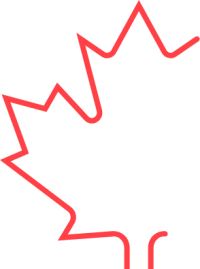
Nova Scotia Health Authority is searching for a remote wearable rehabilitation solution which gamifies rehabilitation and quantifies real-time patient data, to promote patient self-management of rehabilitation activities at home, and enhance patient adherence rates.
Nova Scotia Health Authority is posting this Call for Innovation to seek out qualified Canadian companies who can meet the desired outcomes. Nova Scotia Health Authority and CAN Health reserves the right to not move forward with this project at its full discretion and in particular if there are no qualified Canadian companies that can reasonably meet the desired outcomes.
To qualify for a CAN Health project, the company must have its headquarter in Canada and/or the majority (>50%) of the company owned by Canadians and/or significant economic impact to Canada including a high Canadian job creation potential, >70% of contract value to Canada (for distributors of a non-Canadian solution), independent autonomy over business operations and product development (for subsidiaries, affiliates or distributors), current presence (office(s) and client(s)) and can benefit from the CAN Health Network. Priority will be given to companies that meet all eligibility criteria.
For more information on the Call for Innovation process and the commercialization projects funded by CAN Health Network, please refer to the FAQ page on the CAN Health Network website: https://canhealthnetwork.ca/faq/
Problem Statement: Nova Scotia Health Authority is searching for a remote wearable rehabilitation solution which gamifies rehabilitation and quantifies real-time patient data, to promote patient self-management of rehabilitation activities at home, and enhance patient adherence rates. Traditional rehabilitation practices have several limitations. Being able to provide, gamify, and quantify remote rehabilitation support has a direct impact on patient care, and the improvement of fine motor skills and motor coordination.
Objectives: NSHA expects its solution to quantify and monitor all patient rehabilitation activities, improve the adherence to the latter, and improve the overall clinical workflow.
Essential (mandatory) outcomes
The proposed solution must:
- Improve patient adherence
- To increase patient adherence by at least 40% over the duration of the trial.
- Quantify all patient rehabilitation activities
- Including but not limited to: (1) range of motion, (2) frequency of activity, (3) patient reported intensity, and (4) duration of activity
- Improve Clinical Workflow
- Digitization of at least 10% of the clinical workflow associated with rehabilitation plans. Specifically, the digitization and automation of activity tracking, exercise plans, and measurement of biomechanical activities.
The maximum duration for a project resulting from this Challenge is: 10 months.
NSHA has identified that traditional rehabilitation practices have several limitations, including limited patient access and availability, lack of real-time biomechanical feedback, adherence challenges, cost and time inefficiency, and a lack of comprehensive data for assessment and adjustments. Furthermore, the need to travel to receive care can present barriers for patients and result in poor adherence to care plans. When coupled with the lack of immediate improvement, this can significantly hinder patient progress while creating an increased workload for clinicians.
The Acquired Brain Injury (ABI) Program at NSH aims to improve the lives of those that have experienced a stroke or brain injury through a multidisciplinary approach that enhances patient quality of life.
Optimizing this program’s tools using a remote wearable rehabilitation solution which gamifies rehabilitation and quantifies real-time patient data will help promote patient self-management of rehabilitation activities at home, and enhance their adherence rates.

